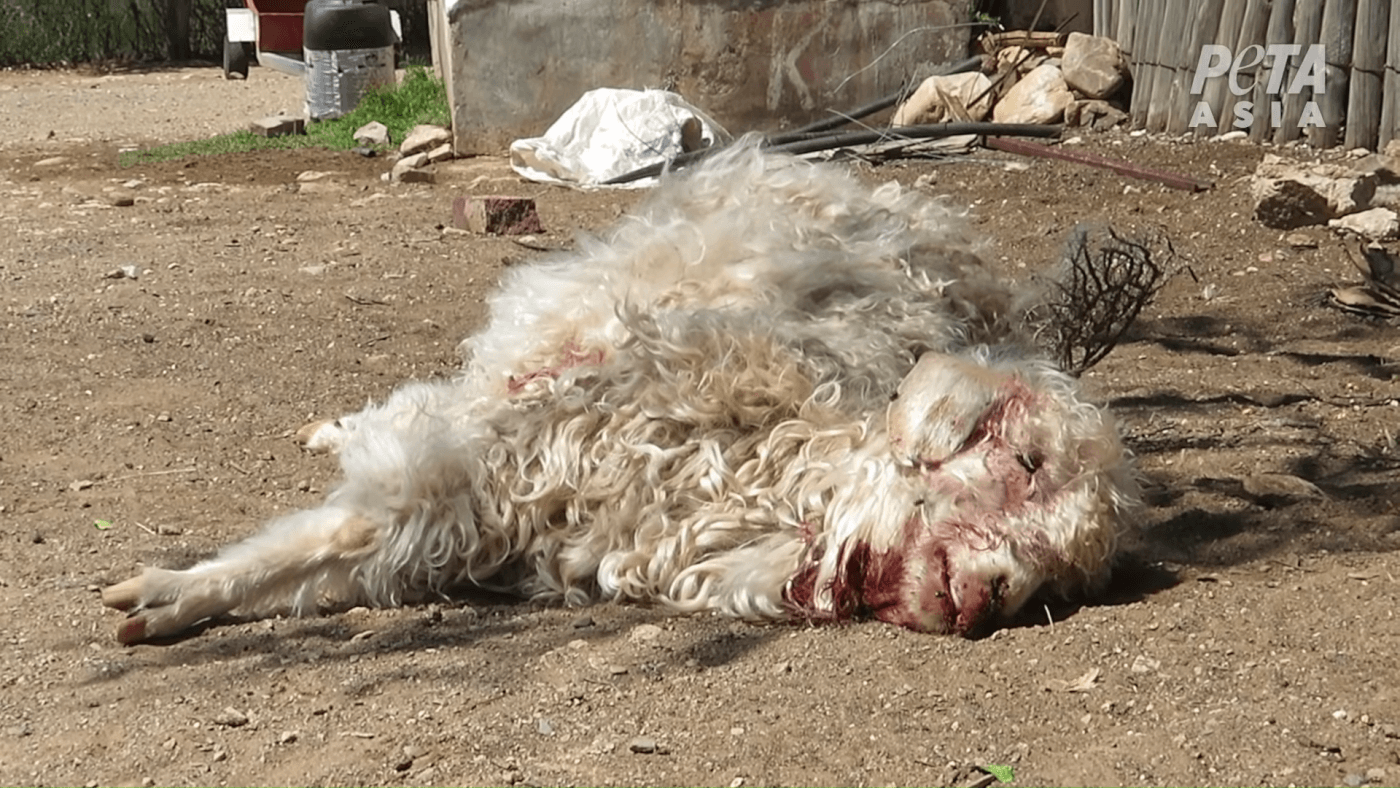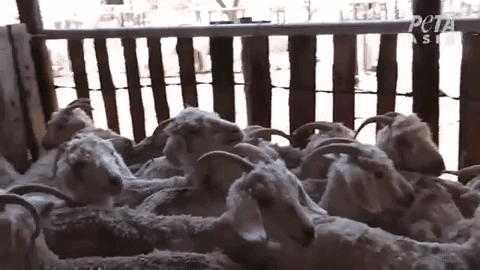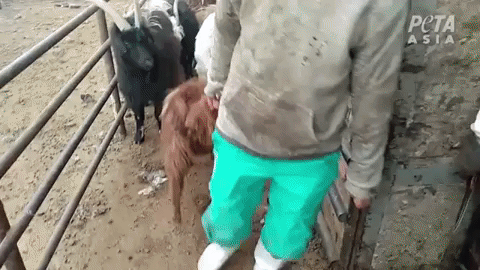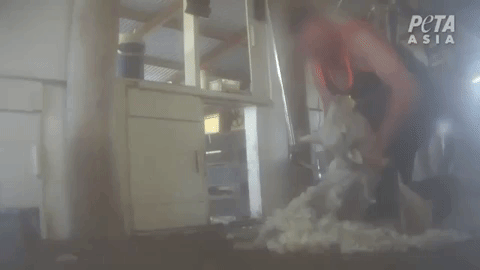PETA Blasts Ralph Lauren at Shareholder Meeting Over Use of Wild-Animal Skins
Update (August 1, 2024): At Ralph Lauren’s annual shareholder meeting this morning, we urged company leadership to end its shameful support of the bloody skins industry. Because we own stock in the company, we have the opportunity to take it to task in front of some of its most influential decision-makers: its investors.
At this year’s meeting, we chose to address Ralph Lauren’s abuse of wild animals. The company uses the skins of alligators, crocodiles, snakes, and other wild animals—which belong only to the animals they were stolen from—for handbags, shoes, belts, watchbands, and other products. We sent a statement to the company blasting it for the use of these skins and asking when it will finally align its corporate practices with its supposed principles.
Read The Statement
I have a question on behalf of People for the Ethical Treatment of Animals.
Ten exposés of the wild animal skins industry by PETA entities have proved that this industry subjects animals to a wretched life of confinement and a violent slaughter.
The latest PETA Asia investigation uncovered appalling cruelty at crocodile and python farms in Thailand. Thousands of crocodiles bred to be killed for their skin spend their lives in murky water pits. In just one horrific example of the immense suffering crocodiles endure, one was seen moving for a full 23 minutes after a worker plunged a metal blade into the animal’s neck.
Emaciated and sick pythons—one whose eyes were grotesquely bulging from their sockets—were housed in boxes and cages so filthy and lived under such deprived conditions that a reptile expert characterized their treatment as inhumane. Workers bashed pythons in the head with hammers, impaled them on hooks, pumped their bodies full of water as they continued to move, and then skinned them.
Before you recite another prepared statement that reiterates your animal welfare policy, allow us to point out that the details from this investigation not only mirror atrocities we have seen time and again in the wild-animal skins trade but also violate the general principles outlined in your own policy. These principles are intended to apply across the entire supply chain and require fundamental aspects of welfare, such as good nutrition and a good physical environment, appropriate behavioral interactions, sufficient space, and slaughter that avoids suffering and pain.
My question is this: Given the impossibility of sourcing wild animals’ skins in a manner consistent with the company’s own principles, when will Ralph Lauren align its practices with the integrity it seeks to inspire and wash its hands clean of wild animals’ suffering by ending its sale of their skin?
The company claims that it’s committed to “responsible” and “sustainable” sourcing but knows that nearly a dozen exposés by PETA entities have shown that unthinkable cruelty runs rampant in the wild-skins industry.
The latest PETA Asia investigation into crocodile and python farms in Thailand uncovered atrocities lurking in the supply chains of luxury fashion companies. Our footage revealed that a worker thrust a metal blade into the neck of a live crocodile whose legs kept moving for over 20 minutes.
It also showed that other workers bashed live snakes in the head with a hammer, punched metal hooks through their heads, and inflated their bodies with water—even as the animals continued to move.
This investigation revealed the abuse and neglect that are the everyday reality in the wild animal skins industry. While we hold Ralph Lauren to the flame in front of its appalled investors and customers to urge it to ban the use of wild-animal skins, you can make a difference for the sentient beings the company abuses.
Please, never buy luxury products made of wild-animal skins. Instead, choose sustainable, animal-friendly leather made from apples, cactus, mushrooms, pineapples, and other plant-based materials.
Actions We’ve Taken Against Ralph Lauren’s Animal Abuse
PETA Asks Shareholder Questions at Ralph Lauren and Capri Annual Meetings
August 4, 2022: Once again, PETA has confronted company leadership at the annual shareholder meetings for Ralph Lauren and Capri Holdings. This time, we pointed out the blatant falsity of a Ralph Lauren executive’s claim that the use of exotic skins may somehow support species’ survival by noting that conservation experts concur that hunting, poaching, and the illicit trade of skins threaten populations of wild animals, including snakes and crocodiles. On behalf of Emmy Award winner Gillian Anderson, PETA also urged Capri—the owner of Michael Kors, Versace, and Jimmy Choo—to join Chanel, Burberry, and HUGO BOSS by ending the sale of cruelly obtained exotic skins.
Investigations have documented that in the exotic-skins industry, alligators’ necks are hacked open and metal rods are shoved into their heads, ostriches’ feathers are yanked out while the birds are still alive, and snakes are pumped full of water to loosen their skin before it’s peeled off—often while they’re still conscious. Since so many companies offer high-end vegan leather options made from pineapples, mushrooms, apples, cactus, and other plant-based materials, there’s no reason for any brand to continue using exotic-animal skins.
PETA Buys Stock in Ralph Lauren
April 7, 2020: PETA has taken advantage of the COVID-19 market slump to purchase stock in nearly two dozen companies—including Ralph Lauren, Urban Outfitters, Guess, and Capri Holdings—in order to push them to ban wool, mohair, cashmere, and exotic skins.
Today’s kind consumers want to support companies that share their values—those that sell chic and comfortable vegan sweaters, coats, and accessories only.
So we’re heading to the boardroom to pressure retailers not to sell items that are devastating to the environment and that goats, sheep, and other animals suffered and died for.

A PETA exposé of the mohair industry in South Africa and a PETA Asia investigation conducted on cashmere farms and in slaughterhouses in China and Mongolia showed that goats were left with bloody, gaping wounds from the rough hair-removal process.
They died in agonizing ways: Their throats were cut with dull knives, they were hit with hammers, and others were dragged by one leg onto the slaughterhouse floor, where their necks were slit.
Just recently, a shearer pleaded guilty to cruelty to animals after being caught beating sheep in the face with heavy electric clippers during a PETA Asia investigation of sheep-shearing crews in Australia—the 13th exposé of the global wool industry that PETA and our international affiliates have released.
In addition to causing the suffering and deaths of millions of animals each year, the production of wool, cashmere, and mohair contributes to climate change, land devastation, pollution, and water contamination.
The public is increasingly turning to vegan materials and identify sustainability and animal welfare as key factors in choosing which brands they buy. Any designer or brand that doesn’t want to be out of touch should turn to ethical, vegan materials.
Shop Vegan, and Speak Out for Sheep and Goats
Did you know that when sheep experience stress or isolation, they display signs of depression similar to those that humans show by hanging their heads and avoiding social interaction? Or that goats love pasta and that they’ll go to great lengths to get some? Sheep, goats, and all other animals deserve to be left in peace. Please, only sport animal-free shoes, clothing, and accessories …
… and speak out for sheep suffering for wool …
… and for goats being killed for cashmere:
Why does PETA purchase stock in companies that are cruel to animals?
We frequently buy the minimum number of shares necessary in clothing companies in order to attend annual meetings, liaise with shareholders, and influence management decisions from the inside. The other companies targeted in this effort include Burberry; Chico’s FAS, Inc.; Express; J.Jill; Deckers Outdoor Corporation (the parent company of UGG); Tapestry, Inc. (the parent company of Coach NY, Kate Spade, and Stuart Weitzman); Aritzia; Lands’ End; Under Armour; and Qurate Retail Group (the parent company of QVC and Home Shopping Network).




